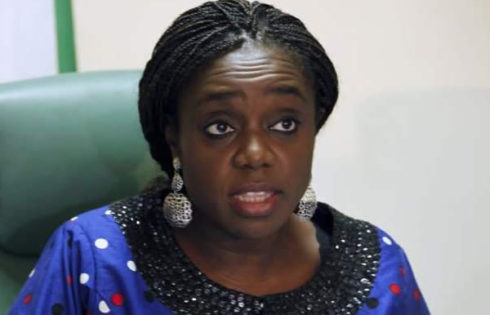
 Nigeria is about to be plunged into another debt repayment scenario. The federal government has forwarded an external borrowing plan to the National Assembly for approval of the legislature. The request though has been denied for now by the Senate, perhaps because the FG didn’t add to the request a breakdown of the expenditure of the funds to be borrowed. This means the FG will make another attempt, this time, with all the information the Senate needs.
Nigeria is about to be plunged into another debt repayment scenario. The federal government has forwarded an external borrowing plan to the National Assembly for approval of the legislature. The request though has been denied for now by the Senate, perhaps because the FG didn’t add to the request a breakdown of the expenditure of the funds to be borrowed. This means the FG will make another attempt, this time, with all the information the Senate needs.
The FG proposed to borrow the sum of $29.96 billion dollars on an external borrowing (rolling plan) basis between 2016-2018 to be arranged from five multilateral institutions which are the World Bank, African Development Bank (AfDB) Japan International Co-operation Agency (JICA), Islamic Development Bank and the China EximBank, including Eurobond issue. The funds, according to President Mohammad Buhari, is to enable his administration address the funding gap in executing the budget over the next three years and also be used, most importantly, for infrastructural development deficit which has been the bane of the country.
A breakdown of the plans for the borrowed sum revealed that 61.2% of the foreign loans would be used for bankable infrastructure projects which includes the Mambila Hydro-electric Power Plant – $4.8 billion; railway modernisation coastal project (Calabar-Port Harcourt-Onne Deep Seaport segment) – $3.5 billion; Abuja mass rail transit project (Phase 2) – $1.6 billion; Lagos-Kano railway modernisation project (Lagos-Ibadan segment double track) – $1.3 billion; Lagos-Kano railway modernisation project (Kano-Kaduna segment double track) – $1.1 billion; and others – $6 billion, while social programmes in health and education, the federal government’s budget support facility, agriculture and the Eurobond issue account for the 38.8% of the funds.
Also, of the $29.96 billion to be borrowed, the federal government will take up 86.3 per cent of total borrowings, or $25.8 billion, while the 36 states of the federation and the Federal Capital Territory (FCT) will account for the balance of $4.1 billion.
The federal government also intends to borrow $3.5 billion from foreign sources for budget support over the next three years. Out of this, $2.2 billion will be dedicated to social projects in the health and education sectors, $1.2 billion in agriculture, while $200 million has been set aside for economic management and statistics.
Of the $2.2 billion assigned to social projects, the federal government will account for the bulk of the projects amounting to $2.1 billion while the states will account for $100 million.
In the area of agriculture, the federal government will account for 75 per cent of the funds borrowed, or $900 million, while states will be expected to borrow $300 million.
Recent media reports reveal that the planned Eurobond issue at the international capital market is the only commercial source of funding being targeted by government, as others are concessionary loans with low interest rates and long tenures.
Dissenting opinions have followed this borrowing plan of the FG as many believe that it would be a case of mortgaging the future of the country. It would be recalled that about a decade ago, Nigeria was freed of most of her debt when it was written off in 2005 and its exit from the Paris Club during the Olusegun Obasanjo’s administration. Nigeria had foreign debt of $3.348 billion by the end of Obasanjo’s administration in 2007. Yar’Adua’s short-lived government also left an external debt profile of $3.947 billion, which was increased to $9.3 billion by June 2015, at the end of Goodluck Jonathan’s tenure.
Dissenting opinions have continued to trail the borrowing decision of the FG. While a few are of the opinion that it may be a good step to take, if only the government use the funds prudently, others say the timing is wrong, most especially as the FG continues to boast of the funds it has recovered from looters. Many are wondering what the recovered funds have been used for, since government hasn’t given an account of the funds or if the recovered monies have been “re-looted.” Again, there is also a question of how well the 2016 budget has fared as the people are yet to feel the impact of whatever monies may have been pumped into the economy by the government. The dollar continues to rise against the naira and the recession bites harder as more businesses are closing down or relocating to other countries.
